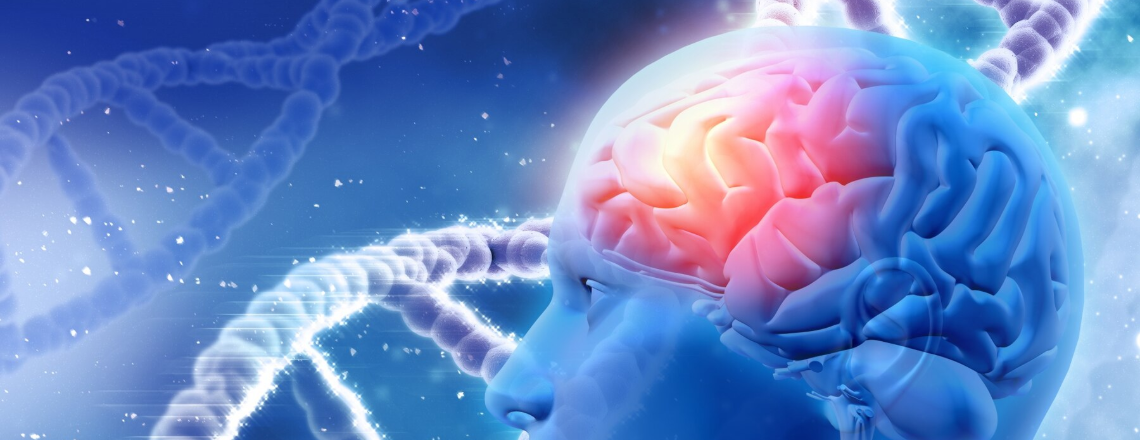Neurodegenerative Disease Test
Published Jan. 24, 2024
By Hopkins Medtech
What are Neurodegenerative Diseases?
Neurodegenerative diseases encompass a range of conditions characterized by progressive degeneration of the nervous system, leading to the gradual decline in cognitive function, movement, and often affecting both motor and non-motor functions. These diseases involve the malfunctioning or loss of nerve cells (neurons) in specific regions of the brain or spinal cord.
Symptoms vary depending on the specific disease but often include cognitive decline, memory loss, movement difficulties, mood changes, and impaired daily functioning.
Neurodegenerative diseases are progressive, meaning symptoms worsen over time as more neurons are affected.
Causes and Mechanisms of Neurodegenerative Diseases
Genetic Factors: Some neurodegenerative diseases have a genetic component, while others result from a combination of genetic and environmental factors.
Protein Aggregation: Many neurodegenerative diseases involve the accumulation of abnormal proteins (e.g., amyloid-beta, tau, alpha-synuclein) in the brain, disrupting cellular functions and leading to neuronal damage and death.
Inflammation and Oxidative Stress: Chronic inflammation and oxidative stress play a role in damaging neurons and promoting neurodegeneration.
Causes and Mechanisms of Neurodegenerative Diseases
Alzheimer’s Disease (AD): Affects memory, thinking, and behavior. It’s characterized by the accumulation of amyloid plaques and tau protein tangles in the brain.
Parkinson’s Disease (PD): Involves movement impairment, tremors, stiffness, and slowness of movement. It’s due to the loss of dopamine-producing neurons in the brain.
Amyotrophic Lateral Sclerosis (ALS): Affects motor neurons, leading to muscle weakness, paralysis, and ultimately, respiratory failure.
Huntington’s Disease (HD): Caused by a genetic mutation, leading to involuntary movements, cognitive decline, and psychiatric symptoms.
Multiple Sclerosis (MS): An autoimmune disease causing damage to the protective myelin sheath surrounding nerve fibers, resulting in communication disruptions between the brain and the body.
Types of Neurodegenerative Disease Tests
Clinical Assessment and Neurological Exams:
Medical History and Physical Examination: Assessing symptoms, cognitive function, motor skills, and neurological deficits.
Neuropsychological Testing: Evaluating cognitive function, memory, language, and other mental abilities.
Imaging Techniques:
Magnetic Resonance Imaging (MRI): Provides detailed images of the brain’s structure, detecting atrophy, lesions, or abnormalities.
Positron Emission Tomography (PET): Visualizes brain metabolism, blood flow, or specific protein accumulation associated with neurodegeneration.
Genetic Testing:
DNA Testing: Identifies genetic mutations linked to inherited neurodegenerative diseases like Huntington’s disease, familial Alzheimer’s disease, or certain forms of Parkinson’s disease.
Genetic Screening: Detects specific gene mutations or variations associated with increased risk or predisposition to neurodegenerative conditions.
Cerebrospinal Fluid (CSF) Analysis:
Lumbar Puncture: Collects CSF to analyze protein levels, biomarkers (e.g., tau, beta-amyloid), inflammatory markers, or genetic material related to neurodegenerative diseases.
Blood Tests:
Biomarker Analysis: Measures specific proteins or molecular markers in the blood associated with neurodegenerative diseases (e.g., amyloid, tau, neurofilament light chain).
Electroencephalography (EEG):
Measures electrical activity in the brain to detect abnormalities in brain waves, aiding in diagnosing conditions like epilepsy or monitoring brain function in neurodegenerative diseases.
What are the applications and considerations of Neurodegenerative Disease Tests?
Diagnostic Confirmation: These tests aid in confirming suspected diagnoses, ruling out other conditions, and distinguishing between various neurodegenerative diseases.
Monitoring Disease Progression: They help track disease progression, assess treatment efficacy, and determine the need for interventions.
Research and Development: Testing contributes to research by identifying biomarkers, studying disease mechanisms, and facilitating the development of potential therapies or preventive measures.
Challenges and Future Directions of Neurodegenerative Disease Tests
Early Detection: Early identification of biomarkers or subtle neurological changes remains a focus for detecting neurodegenerative diseases in their pre-symptomatic or early stages.
Precision Medicine: Advancements in personalized medicine aim to tailor treatments based on individual genetic profiles, biomarker levels, and disease progression.
